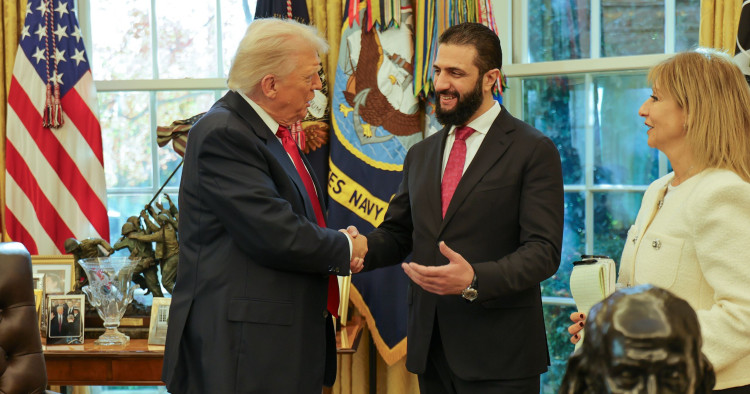In less than a year, this Syrian transitional government has received official visits in Damascus from more governments around the world than the Assads received in 53 years. Moreover, having previously faced the world’s biggest and most intricate sanctions regime since 1979, Syria has been granted sanctions relief at record-breaking speed. At no time in world history has a post-conflict country come close to matching the speed and scope of this rush to Damascus.
The cause for this surge in engagement is the historic opportunity that the change in Syria represents. For too long, the phrase “what happens in Syria never stays in Syria” was associated with security threats, but the promise of turning that equation on its head and generating positive ripple effects emanating from Syria is a cause that has united the world – from the United States to Russia, China, and everywhere in between. This trend has two rare exceptions, however. In an unfortunate twist of irony, only two governments worldwide have taken a posture of opposing Syria’s transition: Israel and Iran.
Read more in The Times of Israel
The Middle East Institute (MEI) is an independent, non-partisan, non-for-profit, educational organization. It does not engage in advocacy and its scholars’ opinions are their own. MEI welcomes financial donations, but retains sole editorial control over its work and its publications reflect only the authors’ views. For a listing of MEI donors, please click here.













